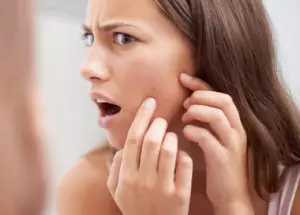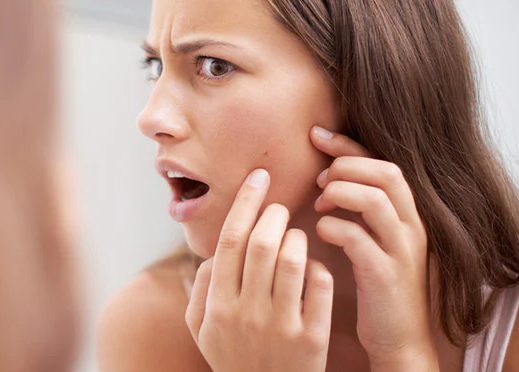
**Understanding Pimple Popping: What You Need to Know**
Pimple popping, the act of manually extracting the contents of a pimple, is a common and somewhat satisfying practice for many. However, it comes with significant risks that can impact your skin health.
**What Happens When You Pop a Pimple**
When you pop a pimple, you’re essentially squeezing out the pus—a mixture of oil, dead skin cells, and bacteria—that has accumulated in a clogged pore. While this might provide immediate relief and reduce the pimple’s visibility, it can also force the contents deeper into the skin, leading to more inflammation and potential scarring.
**Risks Involved**
1. **Infection**: The act of popping can introduce new bacteria into the skin, causing further infection.
2. **Scarring**: Improper technique or excessive force can damage the skin, leading to permanent scars.
3. **Inflammation**: Popping can cause increased redness and swelling, making the area look worse in the long run.
**Safe Alternatives**
Instead of popping pimples, consider these safer alternatives:
– **Topical Treatments**: Over-the-counter treatments containing benzoyl peroxide or salicylic acid can help reduce pimples.
– **Warm Compress**: Applying a warm compress can help to reduce inflammation and encourage the pimple to heal naturally.
– **Consult a Dermatologist**: For persistent or severe acne, a dermatologist can provide professional treatments and advice.
**Proper Technique (If You Must Pop)**

If you absolutely must pop a pimple, follow these steps to minimize risks:
1. **Wash Your Hands**: Clean your hands thoroughly to prevent introducing bacteria.
2. **Sterilize the Area**: Use an alcohol wipe to sterilize the pimple and surrounding skin.
3. **Gentle Pressure**: Use gentle, even pressure with clean tissues or cotton swabs. If it doesn’t pop easily, leave it alone.
4. **Aftercare**: Apply an antiseptic or antibiotic cream to prevent infection and aid healing.
**Conclusion**
While pimple popping can be tempting, it’s generally best to avoid it to prevent further skin issues. Opt for safer treatment methods and consult with a dermatologist for persistent acne problems. Remember, healthy skin is more important than immediate satisfaction.
